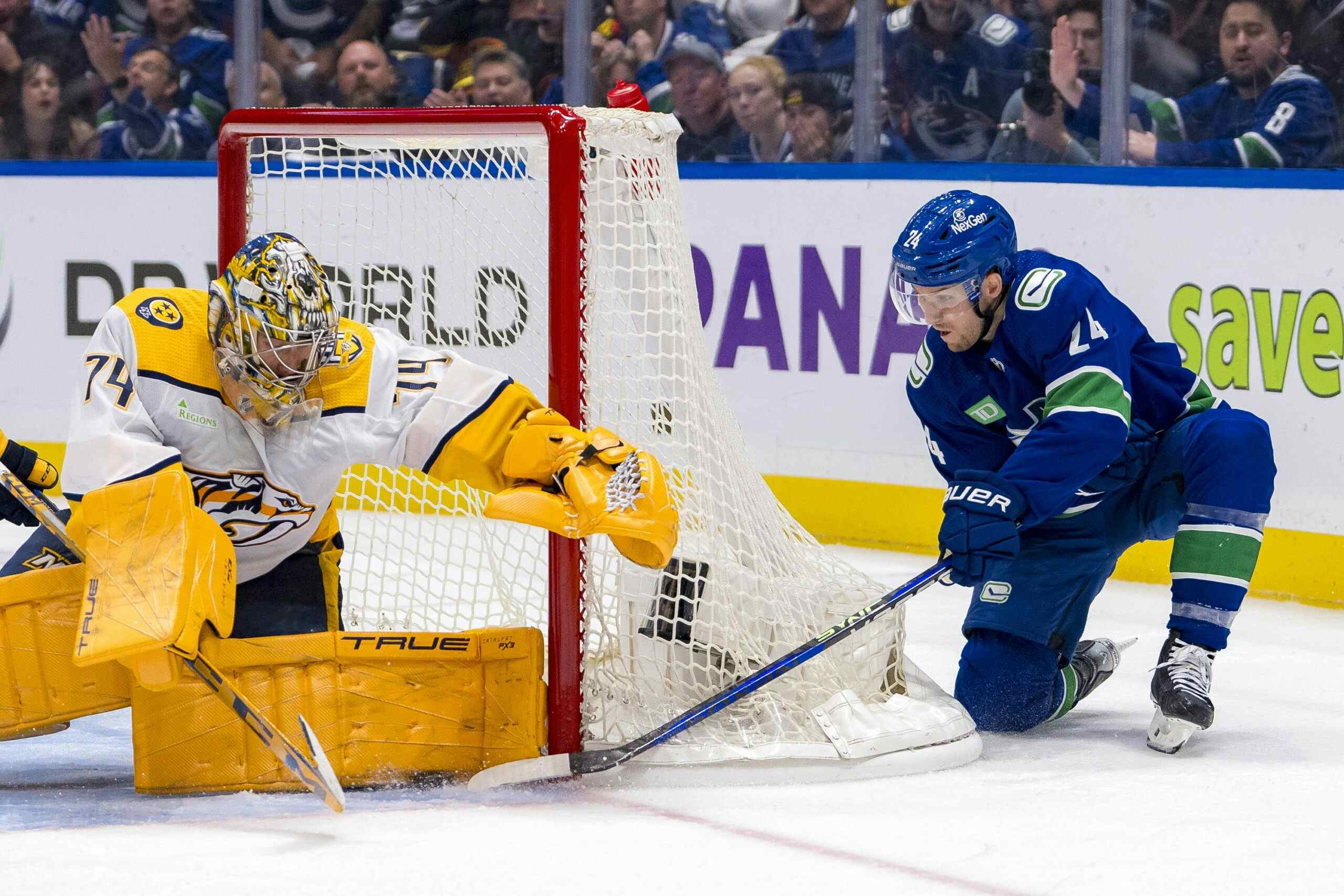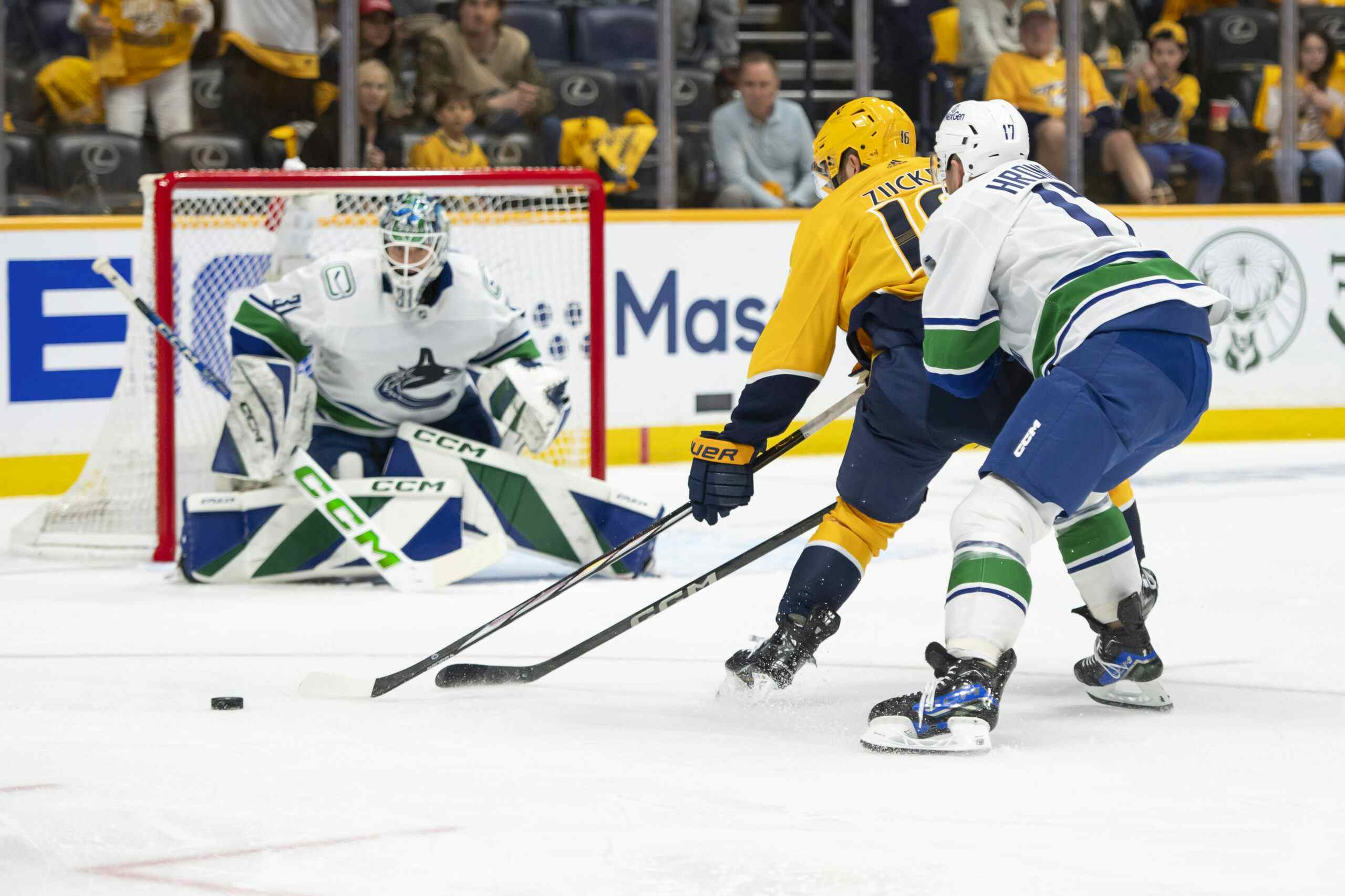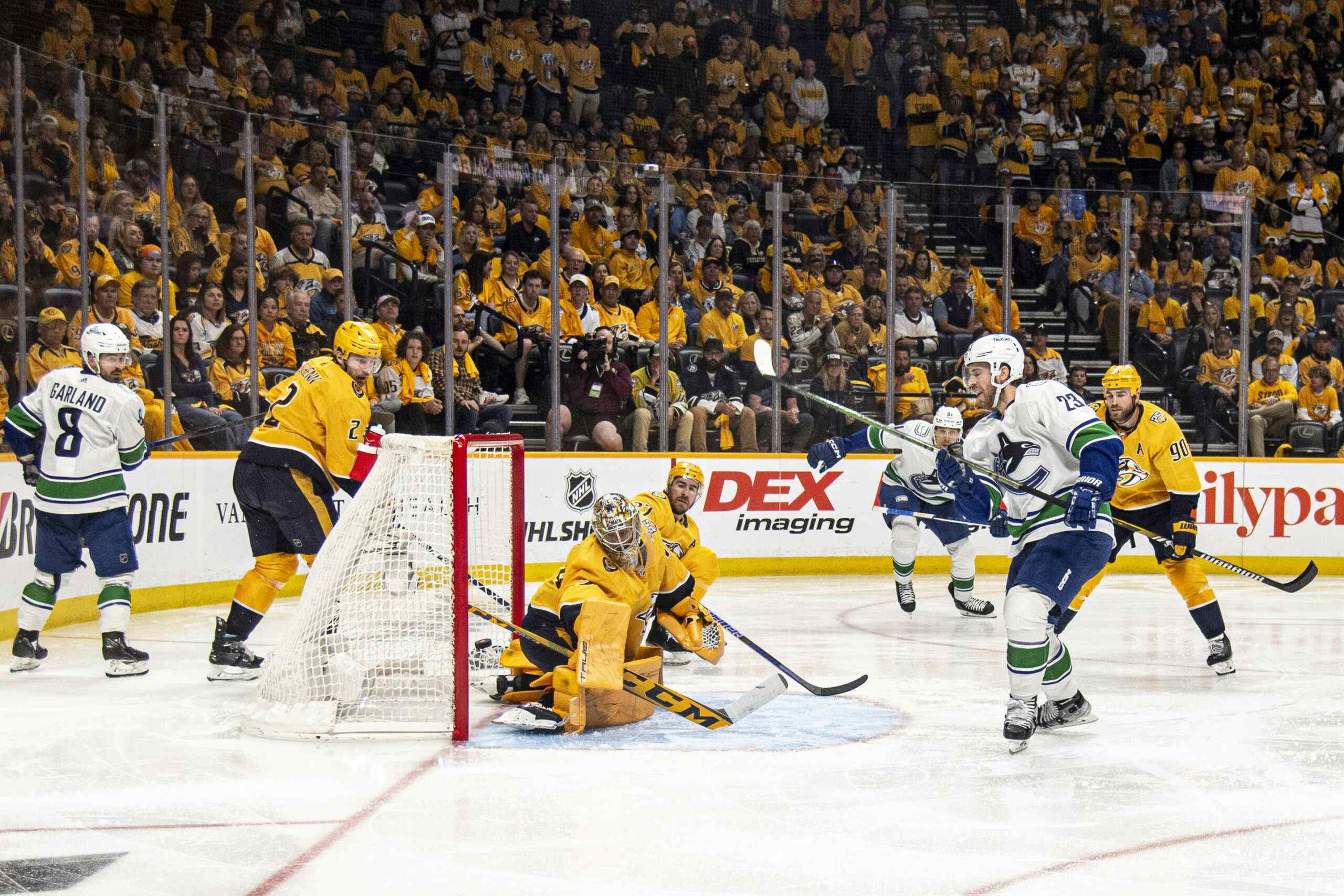Canucks GM Mike Gillis blames “some guy in his mother’s basement” for Luongo buyout talk

On Tuesday, Canucks GM Mike Gillis did an interview with Hockey Central, ostensibly to talk about the Canucks’ new 10-year deal with Sportsnet, which hosts the show. Unsurprisingly, the discussion soon turned to Vancouver’s goaltenders, with the bulk of the focus falling on Luongo, who has been a staple in trade rumours for most of the last year.
Buyout for Bobby Lou?
Doug MacLean, the former general manager of the Columbus Blue Jackets, asked Gillis to confirm that he had no plans to use a compliance buyout on Luongo. Both MacLean and Gillis agreed that buying out Luongo was a terrible idea, and Gillis expressed wonderment that the concept had any traction at all in the media:
A lot of the things that get said are so unrealistic, and I don’t know where they come from. Maybe it’s social media now, some guy in his mother’s basement has the same voice as mainstream media guys, but who knows? A lot of the stuff that’s out there, it’s just absurd.
The “guy in his mother’s basement” comment is likely a reference to bloggers, as it has often been used pejoratively as a generalization for new media. It’s a silly phrase that tars a broad and diverse group of individuals, but perhaps it’s understandable – the Canucks goaltending situation has been a subject of incredible scrutiny over the last few years at all levels of the media, and it would be extremely surprising if the organization wasn’t occasionally frustrated by the coverage.
In this particular case, it isn’t hard to find bloggers speculating confidently that the Canucks would choose to buyout Luongo (though at this site, Thomas Drance scoffed at the notion in early January). Take for example this quote from a December post on The Canuck Way, a Canucks blog affiliated with the FanSided network (Fansided is a group of 230 blogs, and is well-regarded enough to have a partnership with Sports Illustrated):
Holding onto Luongo could create a distraction for the team as it has gotten to a point where everybody knows his tenure as a Canuck is over. If he is not traded prior to the start of the season, it would be clear they are setting up for a buyout in the summer.
On the other hand, neither is it difficult to find members of the mainstream media indulging in identical speculation. Five days after the post quoted above, the Ottawa Sun’s Bruce Garrioch wrote a piece listing candidates for an amnesty buyout with the following quote:
Roberto Luongo, goalie, Vancouver Canucks: He is signed through 2021-22 with a cap hit of $5.3 million. If the Canucks aren’t able to deal him to Florida or Toronto, he’ll definitely be sent packing.
It wasn’t just national writers who spoke of Luongo as a "buyout candidate," local reporters like Iain Macintyre of the Vancouver Sun discussed the possibility in early January as well.
Democracy!
But perhaps Gillis isn’t wrong to blame bloggers and users of social media – or at least the shift toward new media – for the speculation. It’s a fascinating time in the evolution of media coverage, as the internet affords new voices an opportunity they never would have had before. More than that, though, it has democratized the way sports is covered: average fans commonly interact not only with bloggers, but with beat writers and even players.
In hockey, the democratization of coverage has led to an ever-increasing focus on trade rumours. Few things are more exciting for a fan than the possibility of a big move, and feeding that interest hasn’t solely been the domain of the anonymous charlatans that spread rumours by the truckload. Even mainstream media organizations go where the money is – and much of the time the interest (and therefore the money) is in stories about trades and possible trades, signings and buyouts. Certainly this site has covered the Luongo trade-saga from just about every angle imaginable.
So there’s always going to be a frenzy of interest when a situation like the one in Vancouver arises, and the media – both new and mainstream – is going to tweet and talk and write about it a lot. With such volume, there are bound to be exceptional pieces of analysis or reporting, but there are also bound to be the “absurd” stories that bother Gillis.
It’s not ideal for a team that would like the story to die down, but it’s healthy. And while the Canucks may not particularly like the distraction, the reality is that the increased attention is good for both the team and the league.
(For more on this wide-ranging interview with Mike Gillis, check out Thomas Drance’s post from Tuesday)
Recently by Jonathan Willis
- For the Oilers, the course is set
- Dustin Penner: On the trade market again
- Best of the Nation – 2.10.13
- Ralph Krueger shuffles his lines; VandeVelde recalled
- Ales Hemsky has a unique ability to take over games
- As a rookie, Justin Schultz is already the Oilers’ top defenceman
Recent articles from Jonathan Willis





